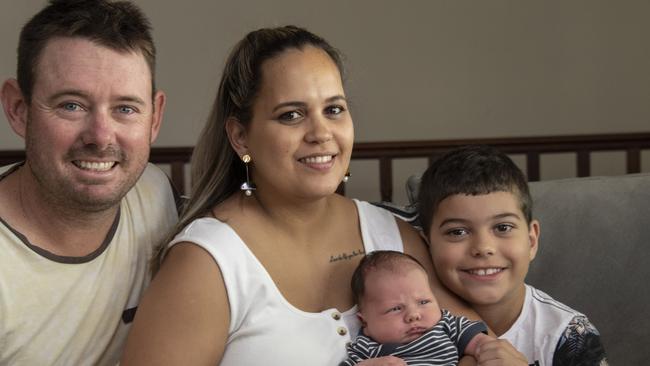Maternity planning program aims to address bush baby crisis gripping Queensland regions
Regional women could be saved the trauma and expense of rushing to major hospitals to give birth, as the State Government rolls out a pilot program that will lead to reopening vital services in four areas.
QLD News
Don't miss out on the headlines from QLD News. Followed categories will be added to My News.
REGIONAL women could be saved the trauma and expense of rushing to major hospitals to give birth, as the State Government rolls out a pilot program that will lead to reopening vital services in four areas, including ground zero for service closures, Theodore.
Health Minister Steven Miles will today announce Theodore as a site for maternity planning. By year’s end, an investigation will commence into whether Theodore Hospital should be upgraded, meaning women would avoid having to travel to bigger centres.
Bush maternity crisis: Draft taskforce report reveals risk to rural families
Bush baby crisis proof of the need for a free press

“This process has two key steps, namely to review and assess current services and to design or redesign the service to better meet the needs of local women,” Mr Miles said.
“Safety must be the first priority, so a thorough assessment of what’s possible is essential before an HHS can commit to upgrading a maternity service.”
It’s the third maternity planning site announced after Weipa and Cloncurry. A fourth location is expected to be announced soon.
It comes after a Sunday Mail campaign exposed horrific experiences women were having just to give birth, with roadside births, Third World DIY birth kits and major expenses.
In June a leaked draft Rural Maternity Taskforce report revealed bush babies were 65 per cent more likely to die in the perinatal period than those in the city or inner-regional areas.
Planned births ceased at Theodore Hospital in 2011 and the community has been fighting to have its maternity ward reopened since a decision was made to shut it last year.
A pilot program has been under way in Cloncurry.
“Factors to be assessed include demand, risks and benefits, and staffing and resourcing requirements. North West HHS is one of the first services to pilot the new planning framework,” Mr Miles said. “If a birthing service in Cloncurry is feasible, it would mean women with low-risk pregnancies … could have their babies closer to their homes.”


